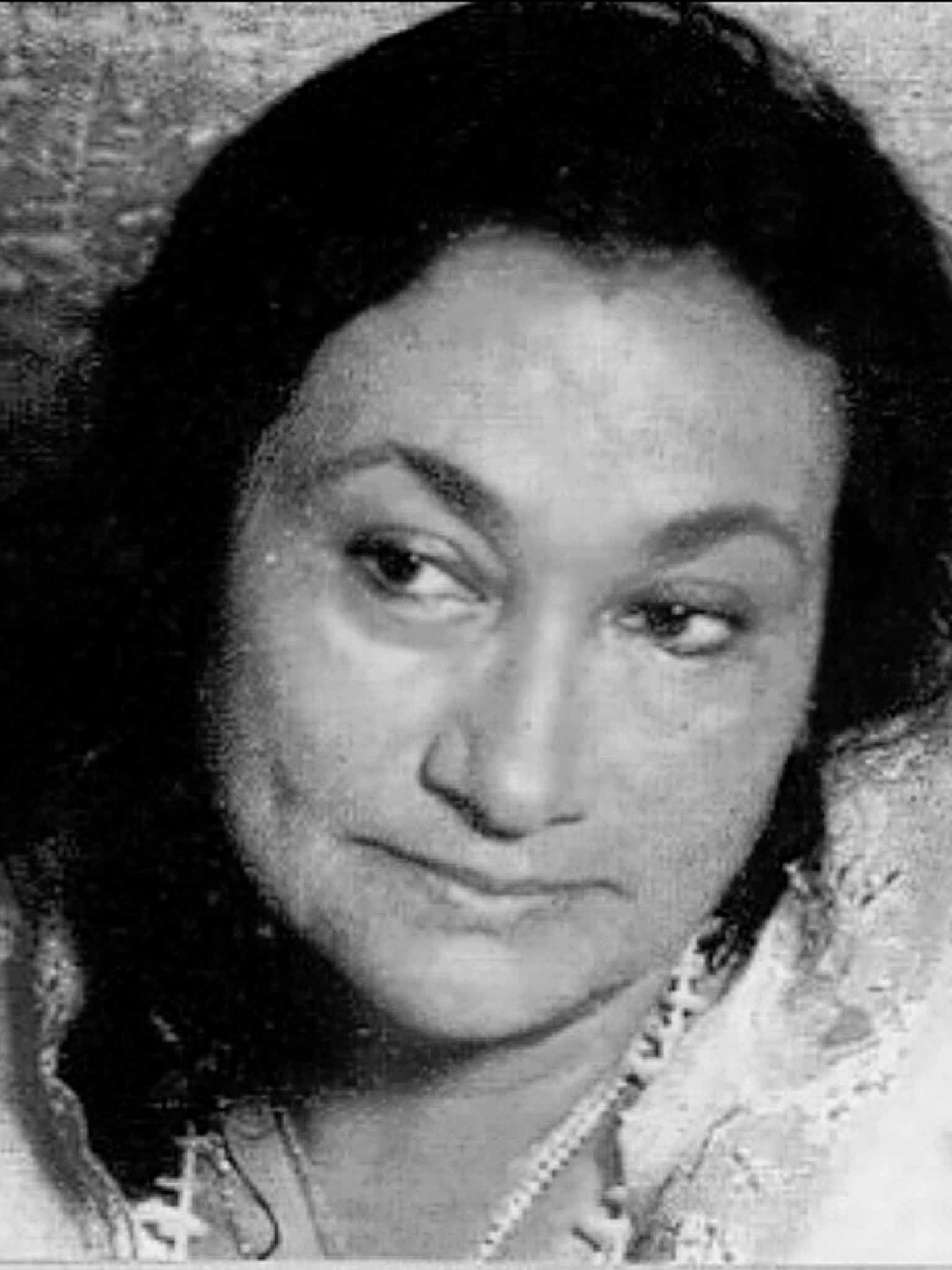Firoza Begum: Singer who popularised the work of Kazi Nasrul Islam and was known as 'The Nightingale of Bangladesh'

Firoza Begum was 10 years old when she brought before the poet and composer Kazi Nazrul Islam and asked to perform some songs. "Did you know who that man in the topi and with long hair who asked you to sit next to him was?" she was asked by her uncle, who had taken her. "How could I? I've not seen him before," she replied.
The young girl was soon to start as a student of the man who would become the national poet of Bangladesh, and two years later she made her first recording for HMV when she sang a collection of Muslim songs. At the time, Nazrul was HMV's in-house voice coach. During the course of her life, she would devote herself to popularising the music of Nazrul, in dozens of recordings and in performances across South Asia and around the world. Some people called her "The Nightingale of Bangladesh".
Some of Nazrul's songs related to the Indian independence movement, with which he was closely associated, while others were more spiritual. Yet many credit Begum with saving a canon of music that was going out of fashion. She would later serve as the first chairperson of the Nazrul Institute, a government-funded institution dedicated to publishing the poet's works and recordings. "I always dreamt of recording my songs and hoped everybody would listen to my music," she once said.
Begum was born into an aristocratic, land-owning Muslim family in Faridpur, in what was then British India, one of seven brothers and sisters. Her father was Khan Bahadur Mohammad Ismail, a landlord, while her mother was Begum Kaokabunnesa.
Her interest in music began when was she very young, reportedly from listening to records played in the kitchen of the family home. It was highly uncommon for Muslim girls, even from established families, to pursue such a career.
After her performance in front of Nazrul he took on her on as his personal student. Nazrul's illness – he would eventually die in 1976 after decades of suffering from a rare, little-understood degenerative condition – meant that she only studied for a short period with the master.
In 1949 she and the established ghazal singer Talat Mahmud were the voices selected for the inauguration of Pakistan Radio's Dhaka studio. While Begum was only briefly a pupil of Nazrul, it was through him that she met Kamal Dasgupta, a highly prolific composer and singer who would become her tutor and eventually husband.
Begum married Dasgupta, a man credited with composing as many as 8,000 songs and devising tunes for 400 of Nazrul's songs, in 1956. Dasgupta was Hindu and both their families objected to the marriage. Begum's family had previously been trying to make her agree to an arranged wedding, as is normal across South Asia. They went ahead and married anyway, one of several instances cited by commentators of the singer's independent-mindedness.
Between 1954 and 1967 the couple lived in what was then Calcutta, where they raised three sons, Tahsin, Hamin and Shafin. Hamin Ahmed and Shafin Ahmed would follow their mother into music; in 1979 they established the Bangladesh rock band Miles, which still performs today.
Shafin Ahmed remembers his mother working hard to raise three sons, living in one room, where she cooked, cleaned and made their clothes. During this period she had largely given up her recording and performing career in order to concentrate on the children.
When her husband began to suffer health problems the family moved to Dhaka, in what was then East Pakistan and which, four years later and following a bloody war of independence, would become Bangladesh. After having spent so many years in Calcutta, there were initially problems obtaining permission for her husband to travel to Dhaka. It fell to Begum to take care of the problem.
Her husband was eventually obliged to take on a Muslim name, Kalamuddin Ahmed, and obtain a Pakistani passport, which he kept until his death in 1974, following which Begum continued to perform and record. Her concert schedule took in the United States, Canada, the Middle East and Australia, and she is estimated to have performed at more than 300 solo concerts
While she was most closely associated with the music of Nazrul, Begum also performed modern Bengali songs, Urdu ghazals and even Hindu devotional music. In 1979 she received Bangladesh's Independence Day Award, the then-recently minted country's highest such honour.
The celebrated Bangladeshi singer Runa Laila remembers Begum as someone who encouraged and inspire younger performers. "I found her very caring, and always treating her juniors with love and respect," she said.
Begum had been taken to the Apollo Hospital in Dhaka for treatment for heart and kidney problems, her family said. Following her death, thousands of people paid their respects at her coffin, which was placed on public display in the capital.
Firoza Begum, singer: born Faridpur, British India 28 July 1930; married 1956 Kamal Dasgupta (died 1974; three sons); died Dhaka, Bangladesh 9 September 2014.
Join our commenting forum
Join thought-provoking conversations, follow other Independent readers and see their replies
Comments